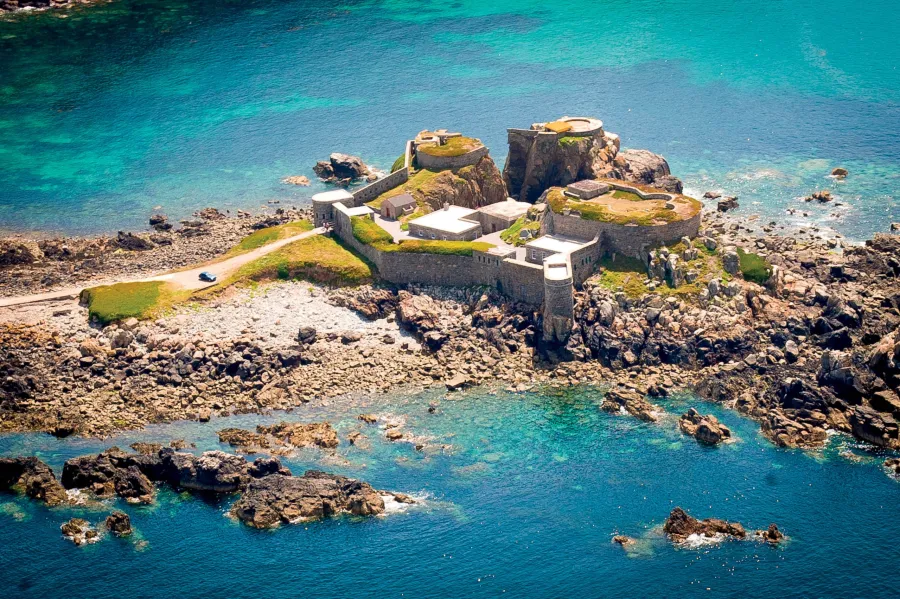What joy, what utter bliss, to rise to the top of your field then retreat to the hills on “airplane mode”, only to learn, once back in civilization, that you missed the call telling you that you’ve received the ultimate recognition for your work. Such was the experience of the immunologist Fred Ramsdell this week, who missed the news that he and his team of researchers had won a Nobel prize for medicine because he was off-grid, hiking and camping in the Rocky Mountains in Montana. An envious world took notice. Admit it: wouldn’t you like to get away too, beyond the reach of WhatsApp, emails, and even phone calls? As the Princess of Wales notes in her recent essay, smartphones are fuelling a disconnection epidemic. The more the digital world encroaches on our time and attention, the more appealing the idea of escaping it becomes. Whether you’re longing for a solo digital detox or a grand adventure in the wild, here are some carefully curated ideas for switching off from technology and reconnecting with the natural world and yourself.
Where to Go Off-Grid in the UK
1. Landmark Trust Properties: Historic Stays Without Connectivity
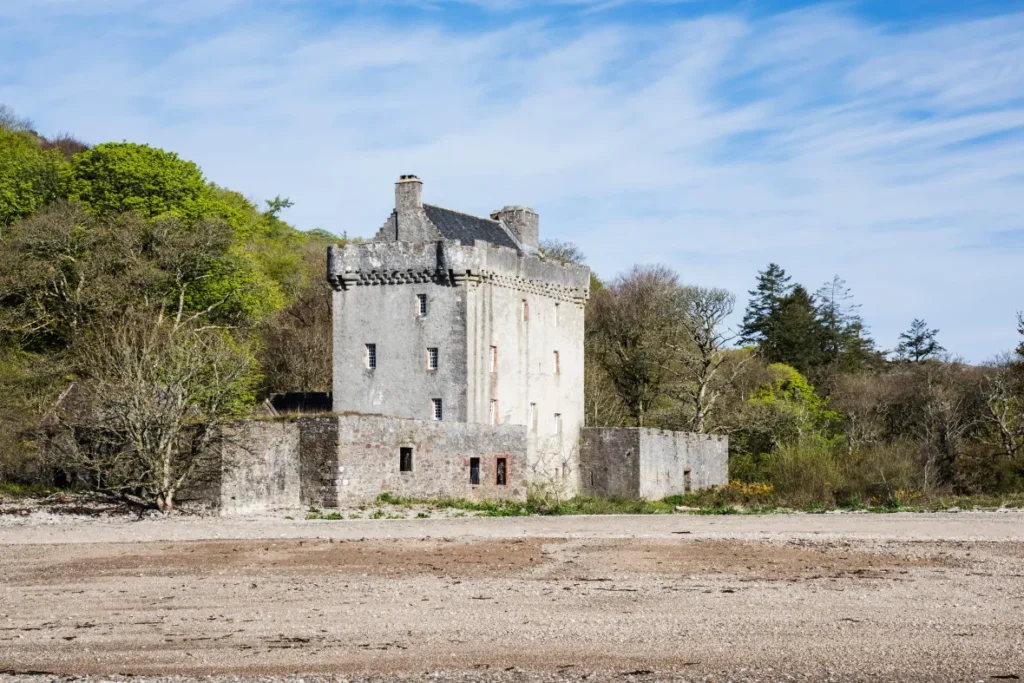
The Landmark Trust offers historic sites turned into holiday stays where the emphasis is on soaking up your surroundings and imagining yourself in a different era. These properties provide authentic digital detox experiences without the need for extreme retreats involving silent walks and lentil-based dinners.
Its most popular stay—Clavell Tower in Dorset, perched on the cliff above Kimmeridge Bay—has no phone signal and no wifi, allowing guests to fully disconnect (three nights’ self-catering for two from £981; landmarktrust.org.uk). The tower’s dramatic cliff-top position creates an environment where checking your phone becomes literally impossible.
Then there’s Lundy Island, off the north coast of Devon, where there are 23 properties from which to choose and the electricity is switched off at midnight so you must continue bedtime reading by torchlight (four nights’ self-catering for two from £470). This unique island setting offers a genuine step back in time, remembering what life was like before we were constantly hunched over, scrolling.
2. Unplugged: Purpose-Built Digital Detox Cabins
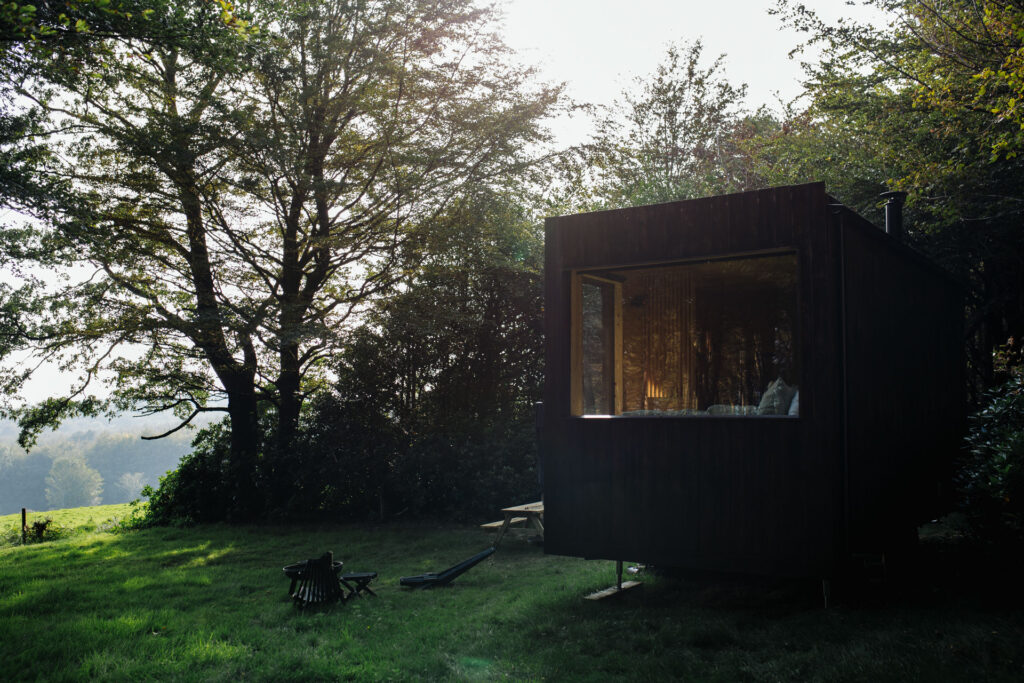
No one is more keen to loosen their grip on gadgetry than the younger generations, it would seem. Take Unplugged, launched by fresh-faced (though ostensibly burnt-out) millennials who since 2020 have designed and built off-grid wood cabins in 20 locations across the UK specifically for people to switch off from the digital world.
All are in rural greenery within two hours’ drive of a city and have lockable boxes for phones to be surrendered for the minimum three-night stay, allowing guests to properly detox. Picture windows mean that you can forest-bathe from bed and the newest addition—Helix near Tunbridge Wells in Kent—has a sauna and ice bath (three nights’ self-catering for two from £600, other cabins from £390; unplugged.rest).
3. National Trust Cottages: Rustic Rural Living
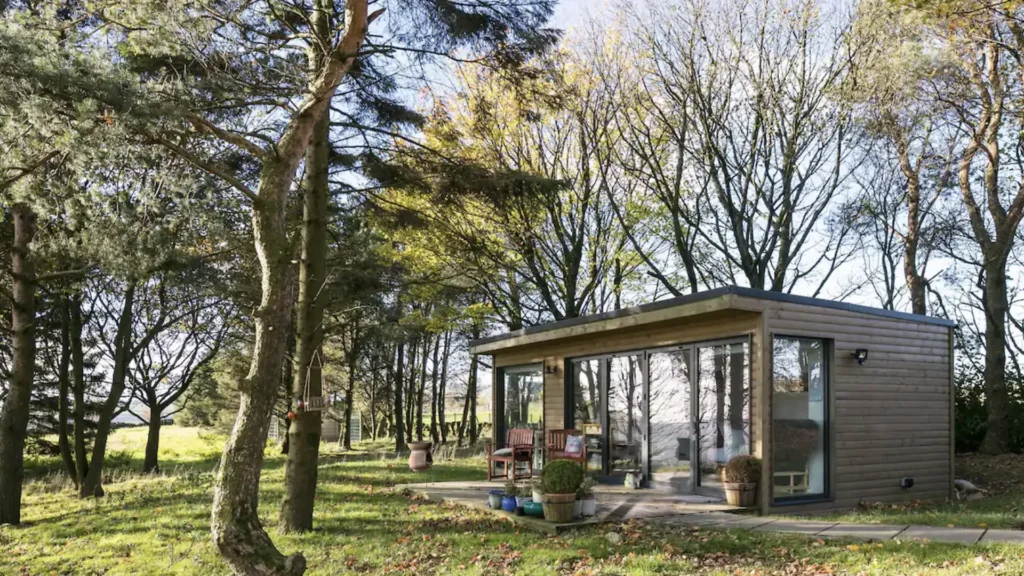
As with many other National Trust holiday lets there’s no wifi at Bird How, an off-grid stone cottage in Eskdale in the Lake District. Its rugged gardens command views of peaceful, empty fells, and you have to hike quite high up them, through bracken and mud, to obtain a phone signal—while standing on a boulder and waving your phone in the air. So don’t bother.
This is a place to embrace old-fashioned rural life: there’s electricity but no proper bathroom, just a showerhead to attach to the kitchen tap. Run it out through the window and wash in the yard (fun, honestly—embrace it). Two nights’ self-catering for four from £247 (nationaltrust.org.uk).
4. Cabins and Bothies: Remote Wilderness Accommodations
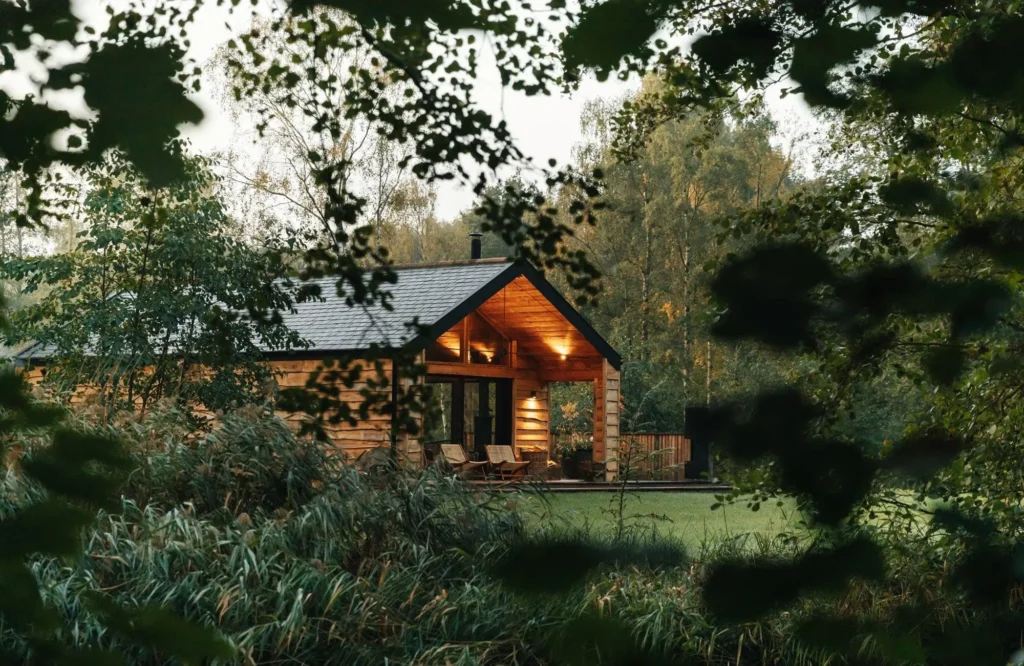
For more off-grid cabins and glamping sites try Canopy & Stars, which offers the black timber Hütte at Hinterlandes—also in the Lake District, on a fell near Crummock Water and Loweswater—with a wood-burner and a battery pack for speakers, but no wifi or phone signal (two nights’ self-catering for two from £299; canopyandstars.co.uk).
Its Ty Bach Bothy in Powys has an outdoor bath and hot tub, with the bookshops of Hay-on-Wye nearby for all your entertainment needs (one night’s self-catering for two from £154). Kip Hideaways has a dedicated collection of “digi detox” cabins, including Black Rhadley in Shropshire, among the rocky tors of Nipstone Rock Nature Reserve (two nights’ self-catering for two from £340; kiphideaways.com).
Or disappear on a bothy-to-bothy hike in Scotland; mountainbothies.org.uk lists them, offering the ultimate wilderness experience for adventurous souls seeking solitude.
Off-Grid Stays in Europe
5. A Casa Rurale in Spain: Complete Disconnection
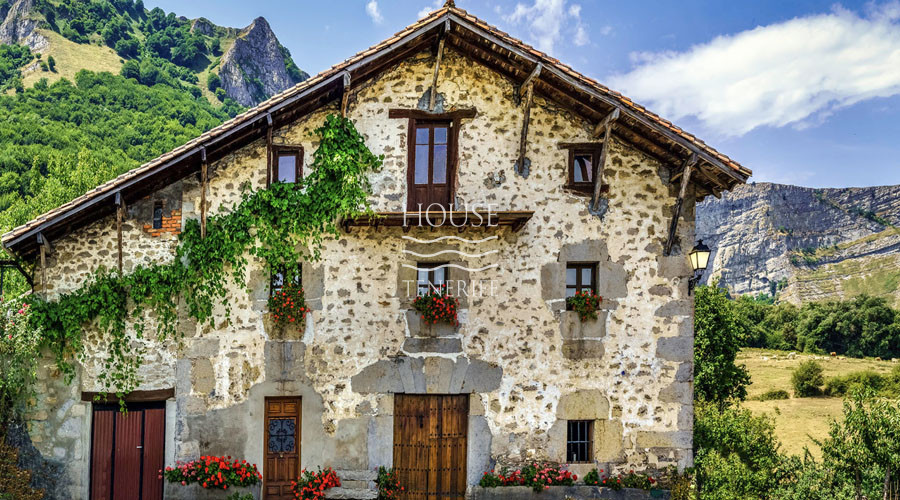
For a family-friendly holiday home in a location that neither 2G, 3G, 4G nor 5G has ever reached, head to Soto de Sajambre. This mountain village of 60 souls sits beside the Aguera River at the foot of the 8,500ft Peña Santa in the magnificent Picos de Europa National Park in the Leon province of Spain.
Soto is known as the least-connected settlement in the nation, with no access to TikTok or the incisive citizen journalism of Facebook. Here you’ll find El Encanto de Picos, two converted cowsheds comprising the Tree House and, new for 2026, the Goblin’s House.
They are designed for families with small children, offering the practicality of travel cots, highchairs, baby carriers and all the other necessities you thought you needed, alongside a big splash of magic: there’s a spiral slide in the kids’ bedroom and the garden is a fairytale. There is a wireless router in the property but the owner will happily disconnect it. A week’s self-catering for four from £673.
6. Fabriken Furillen in Sweden: Baltic Island Isolation

You’re already something of a hermit if you’re in the northern reaches of Gotland, the Baltic Sea island of Sweden. However, check into the Hermit Cabin at the fashionably minimalist Fabriken Furillen resort, on a disused industrial site, and you’ll feel totally cut off.
The cabin has no phone reception, wifi, power or running water. But look around: there are 1,400 acres of wild nature and open water in which to roam, swim and freeze your buttocks numb. Guests bicycle to the hotel for breakfast and showers. Three nights’ B&B in the Hermit Cabin from £534 (furillen.com). Fly to Visby.
7. Alpine Chalets in Austria: Mountain Hideaways
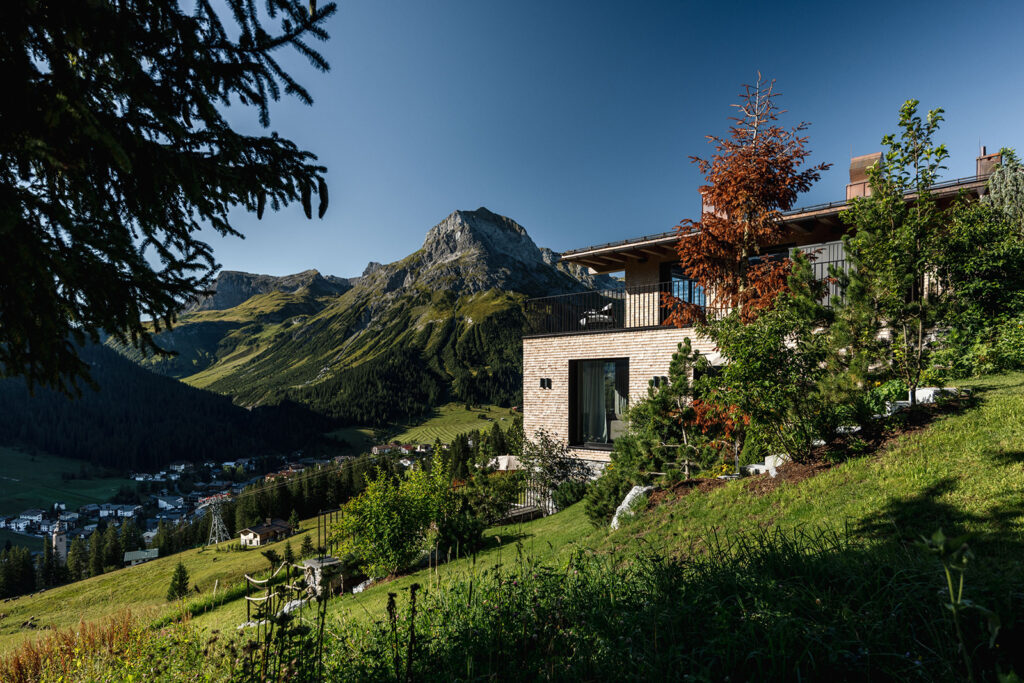
A great resource for back-in-time wooden chalets is the Almliesl website, which collates Austrian mountain hideaways, many with no electricity and definitely no wifi. So magical is one in the Tyrol—the Josef Kreidl Hutte near Jochberg—that travelers return repeatedly.
It has two rooms: a cozy wooden kitchen with gas lights and a huge stove and, up a wooden staircase seemingly built for elves, a bedroom sleeping five under the eaves. It feels extremely isolated in its wooded valley but a two-mile track leads to the village, and in winter you can ski down it through an icicle-hung forest to catch the bus to pistes linking to Kitzbühel.
The rest of the year there is mountain biking and hiking, and simply staring at the trees and stars, getting your mind back together. One night’s self-catering for five from £75 (almliesl.com). Fly to Salzburg or Innsbruck.
8. Eremito in Italy: Monastery-Inspired Retreat
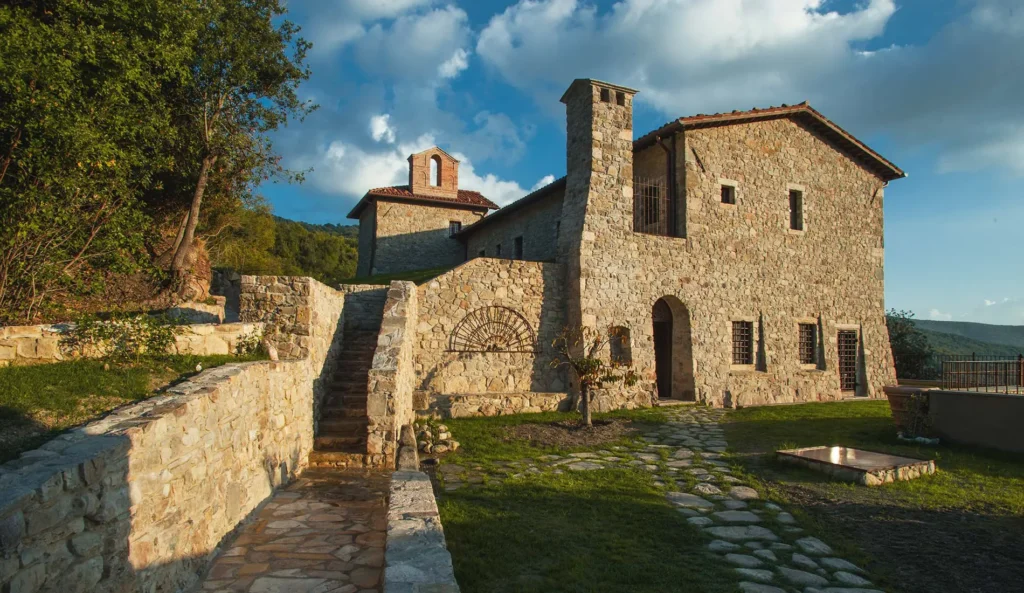
The “Where to find us” directions for Eremito are comically elaborate, involving hand-painted signposts, dirt roads and an escort along the final stretch—or you can hike there. A stone villa modeled on a monastery, it stands in an unspoilt valley with no phone, TV or wifi.
Rooms are styled as hermitage “cells” conducive to meditation and prayer, though there’s underfloor heating and the bedding—in handmade hemp yarn—is more high thread count than hair shirt. Meals are Mediterranean and there’s a steam room and hot tub in a space dug out from the rock. All-inclusive doubles from £252 (eremito.com). Fly to Rome or Perugia.
9. Samsu in Ireland: Tech Veteran’s Digital Detox Vision
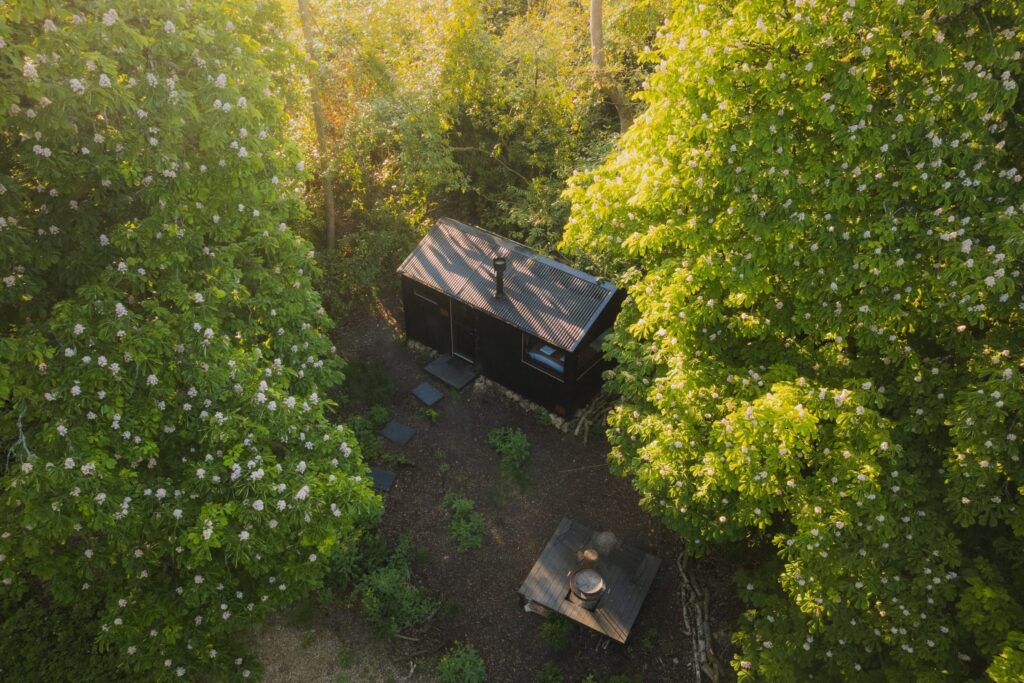
Samsu was founded by the tech veteran Rosanna Irwin, who left her online life to enable others to discover the power of digital detox in her native Ireland. She has created two off-grid cabins in the wilds of Wicklow, with outdoor baths, Polaroid cameras loaded with film and fire pits with kindling and matches. Oh, and a sauna.
Two nights’ room only from £346 (samsu.ie). Fly to Dublin. This represents a perfect example of someone who understood the disconnection epidemic firsthand and created a solution for others seeking respite.
Adventures Further Afield
10. A Remote Lodge in Canada: Vancouver Island Wilderness
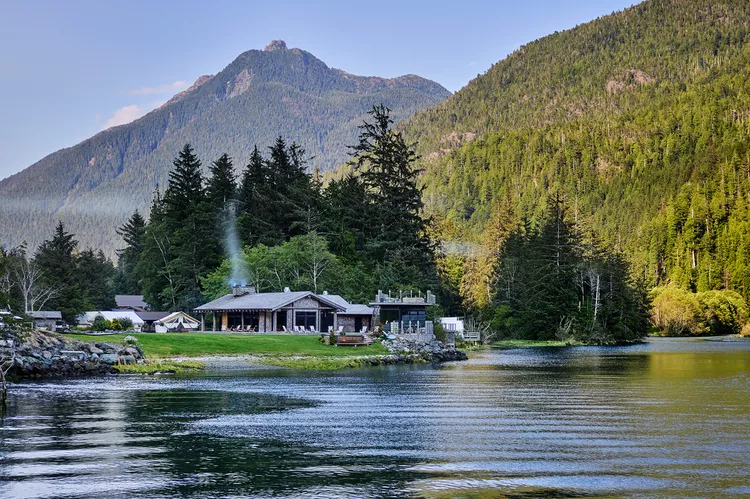
The off-grid Clayoquot Wilderness Lodge perches on a seven-mile fjord surrounded by the forested Insular Mountains of Vancouver Island. There’s no phone signal and no wifi in public areas, just a little in your canvas suite—but ignore that.
Go out with rainforest guides and on bear-watching trips, foraging hikes and kayaking to watch sea lions, then enjoy fine dining and a spa. Three nights’ all-inclusive from £5,136, including a massage (clayoquotwildernesslodge.com). Fly to Vancouver.
The Growing Appeal of Digital Detox Travel
The story of Fred Ramsdell missing his Nobel Prize notification while camping resonates because it represents what many of us secretly crave: a legitimate reason to be unreachable. As smartphones become increasingly intrusive, the digital detox movement has evolved from fringe wellness trend to mainstream necessity.
Why We Need to Disconnect
The disconnection epidemic referenced by the Princess of Wales reflects a paradox: our devices promise connection but often deliver isolation. Constant notifications fragment attention, shallow interactions replace deep conversations, and the pressure to remain digitally available creates chronic stress.
Off-grid travel offers structured permission to step away. Unlike simply turning off notifications at home—where the temptation to check persists—removing yourself from connectivity altogether eliminates choice, allowing genuine disconnection.
Benefits of Going Off-Grid
Research consistently shows that digital detoxes provide measurable benefits:
Improved sleep quality results from eliminating blue light exposure and the habit of checking devices before bed. Off-grid accommodations without electricity or wifi naturally restore healthy sleep patterns.
Enhanced relationships develop when partners, families or friends engage without digital distractions. Conversations deepen, activities become more engaging, and memories form more vividly without screens mediating experience.
Stress reduction occurs as the constant low-level anxiety of staying “on” dissipates. The pressure to respond, stay informed, and maintain online personas evaporates, allowing genuine relaxation.
Increased creativity and problem-solving emerge when minds have space to wander. The airplane mode state that Fred Ramsdell experienced while hiking in the Rocky Mountains likely contributed to the mental clarity that characterizes breakthrough scientific thinking.
Choosing Your Off-Grid Experience
Solo vs. Group Detox
Solo digital detox trips appeal to those seeking introspection and self-discovery. The National Trust cottages and minimalist cabins like those at Unplugged work well for individuals wanting space for reflection.
Group experiences—whether family-friendly holiday homes like El Encanto de Picos or romantic retreats at Eremito—provide shared disconnection, strengthening bonds through undistracted time together.
Comfort Levels
Off-grid doesn’t necessarily mean uncomfortable. Properties range from rustic bothies with no running water to luxury wilderness lodges like Clayoquot with fine dining and spas—just minus the wifi.
Consider your tolerance for primitive conditions. If washing in the yard sounds like fun, Bird How fits. If you prefer luxury with disconnection, Fabriken Furillen or Clayoquot Wilderness Lodge deliver both.
Location Considerations
UK off-grid stays offer convenience for British travelers seeking weekend escapes. The Lake District, Devon, and Scottish Highlands provide stunning natural settings within two hours’ drive of cities.
European destinations like Spain’s Picos de Europa, Austria’s Alpine chalets, or Sweden’s Gotland island add cultural dimensions while still being relatively accessible.
More adventurous options like Canada’s Vancouver Island require significant travel investment but reward with truly remote wilderness experiences impossible to find closer to home.
Practical Tips for Off-Grid Travel
Preparing for Disconnection
Inform important contacts that you’ll be unreachable. Set email auto-responders and update voicemail messages explaining your absence. This creates psychological permission to disconnect without guilt.
Download entertainment like books, podcasts, or music for offline use. While the goal is disconnection, having options for downtime prevents feeling stranded.
Bring physical items usually replaced by smartphones: actual books, paper notebooks, printed maps, Polaroid cameras. Rediscovering analog activities often proves surprisingly satisfying.
Easing Into Digital Detox
For those anxious about complete disconnection, start gradually. Choose properties with limited connectivity rather than none—perhaps wifi in public areas but not rooms. The Clayoquot Wilderness Lodge model works well for tentative detoxers.
Alternatively, commit to lockable boxes for phones like those at Unplugged cabins. The physical act of surrendering devices makes cheating harder and commitment easier.
Maximizing the Experience
Plan activities that replace screen time: hiking, kayaking, forest-bathing, reading physical books by torchlight, stargazing without light pollution.
Engage with nature deliberately. The 1,400 acres of wild nature surrounding Fabriken Furillen or the forested valleys of Austrian mountain hideaways become the entertainment.
Journal your experience. Without digital distractions, thoughts and observations flow more freely. Recording them on paper creates lasting mementos of the digital detox journey.
The Future of Off-Grid Travel
As disconnection epidemic awareness grows, demand for off-grid accommodations will likely increase. Properties explicitly designed for digital detox like Unplugged represent a trend that will expand as more people recognize the need for regular technological respite.
The irony isn’t lost: we use digital tools to find and book accommodations specifically designed to escape digital tools. Yet this paradox reflects a healthy recognition that technology should serve us, not enslave us.
Whether you’re inspired by Fred Ramsdell’s Nobel Prize-winning camping trip or simply exhausted from constant connectivity, off-grid getaways offer legitimate escape from the digital world’s relentless demands. From historic Landmark Trust properties to remote wilderness lodges, from purpose-built digital detox cabins to Alpine chalets with no electricity, options exist for every budget and comfort level.
The question isn’t whether we need periodic disconnection—the smartphones fuelling a disconnection epidemic make that answer obvious. The question is simply which off-grid adventure will be your first step toward rediscovering what life feels like when you’re fully present in it.
Discover more wellness travel trends, digital detox destinations, and mindful escape recommendations at The Inspiring Insight—where we explore the growing movement toward intentional disconnection and help you find the peaceful retreats that restore balance in our hyper connected world.

